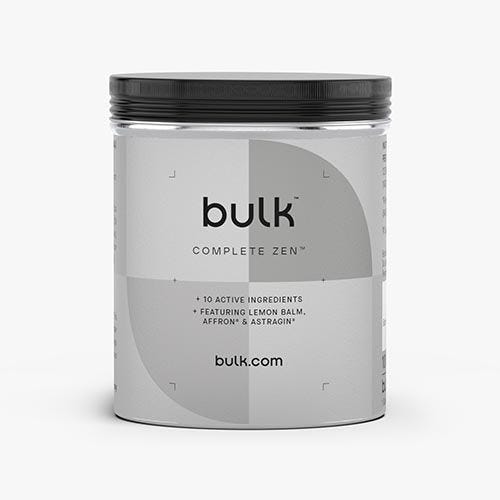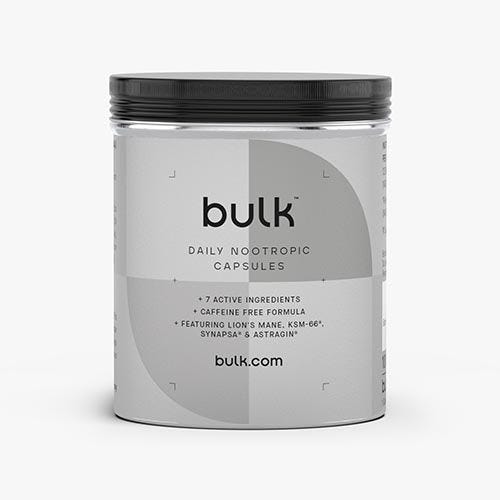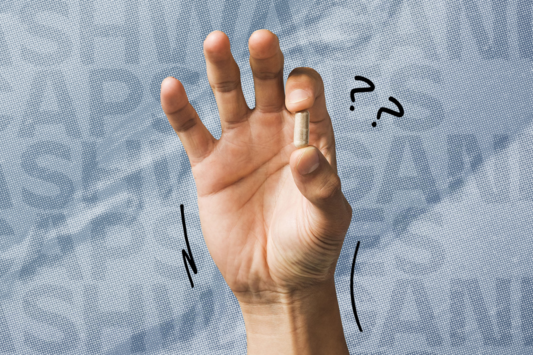Ashwagandha. It’s a herb that’s been used for thousands of years in Ayurveda – a traditional form of alternative medicine from India – but has gained popularity more recently in mainstream circles. Ever wondered why? We’re here to explain what all the fuss is about. Read on to explore the benefits and uses of ashwagandha.
What is ashwagandha?
Ashwagandha is a traditional herb, derived from a shrub native to India and Southeast Asia. It’s also known as ‘Indian ginseng or winter cherry, And its Latin name is Withania somnífera.
Extracts or powders from the ashwagandha plant’s roots or leaves have long been used in alternative medicine for a wide range of purposes. It’s now becoming more popular as a supplement, often as Ashwagandha capsules.
What does ashwagandha do?
Ashwagandha is commonly referred to as an adaptogen – in herbal medicine, this refers to a natural substance that improves the body’s response to stress and helps the body adapt by normalising physiological processes.
It’s most commonly studied for its effects on stress and anxiety. It helps support relaxation, mental and physical wellbeing and cognition, and contributes to emotional balance and overall improved mood.
Related Products
Does ashwagandha have benefits for men?
It’s still very early days for the research on the benefits of ashwagandha for men. Most of the studies conducted on the more niche effects of ashwagandha have small sample sizes and are primarily conducted in its country of origin, India.
However, because these studies are still so small, it’s difficult to say for sure whether taking ashwagandha will have the same effect on everyone.
Does ashwagandha have benefits for women?
Similarly, the female-specific benefits of ashwagandha are also uncertain. Again, the research is still emerging and we don’t have enough support from high-quality studies to make these claims more robust. But it will be exciting to see.
Does ashwagandha help anxiety?
It looks promising. Several studies have shown that ashwagandha may help to relieve stress and anxiety [1] [2] [3]. Although these studies were small – comprising 58 and 60 participants – they both showed statistically significant effects of ashwagandha supplements on participants’ perceived stress and anxiety levels. Participants also reported improved sleep quality and showed significantly lower levels of cortisol (the stress hormone).
Most importantly, a recent meta-analysis of all the research available showed a beneficial effect on both stress and anxiety following ashwagandha supplementation – with the caveat that the certainty of the evidence was lower than in typical clinical studies.
So in short – yes, ashwagandha has the potential to help anxiety. However, we need more research and more large-scale studies to really determine how powerful it can be.
How does ashwagandha work?
Studies have shown that ashwagandha has adaptogenic properties. It likely works by regulating homeostasis via mechanisms of action associated with the HPA axis (a system that regulates the physiological response to stress) and by controlling key mediators of stress such as heat shock proteins, nitric oxide and cortisol [4].
Does ashwagandha work immediately?
Ashwagandha’s benefits are not immediate – it will likely take a while before you feel the effects. Studies investigating the effects of ashwagandha typically look at longer time periods, ranging from 30 days to over 10 weeks. In fact, in one study of 60 people taking 300mg ashwagandha daily, participants took over 10 weeks to report feeling its full effects on their sleep quality. So no – ashwagandha is a supplement to be taken over a longer period of time, rather than having an immediate effect [5].
How do you take ashwagandha?
Ashwagandha is typically taken in pill or capsule form. Simply take one capsule per day. It’s recommended to take it with food to ease absorption. It does come in other forms though, such as powder or gummy form.
It’s recommended to take about 500mg of ashwagandha in a single dose – our KSM-66® Ashwagandha Capsules contain exactly that. KSM-66® Ashwagandha capsules are a form of ashwagandha that is standardised to contain 5% withanolides (the active chemical found in ashwagandha supplements).
| KSM-66® | Non-KSM-66® |
|---|---|
| Full spectrum Standardised at 5% withanolides Branded, trademarked form | Not guaranteed full spectrum Not standardised Non-branded |
Is ashwagandha safe?
Ashwagandha is considered safe for most people. You should consult with your doctor before taking it if you’re pregnant, breastfeeding, or if you have an autoimmune disease such as lupus or rheumatoid arthritis.
Does ashwagandha have side effects?
Ashwagandha might interact with other medications such as thyroid, blood sugar and blood pressure medications – so make sure you check with your doctor first if you take any of those.
Is it good for long-term use?
Since the full beneficial effects of ashwagandha take a while to be felt, it’s actually more beneficial to take ashwagandha on a regular, long-term basis rather than expecting results in the short term. Be patient, and don’t expect results straight away.
Where does ashwagandha come from?
Ashwagandha root comes from a shrub native to India and Southeast Asia. The root is what becomes the powder or capsules that we take as a supplement.
Related Products
Related articles
Looking to learn more? We believe that every person, with support, has the right to transform their lives through fitness. That’s why we’ve put together hundreds of articles with expert advice, all to help you on your fitness journey.
5 Supplements to Survive Freshers Different types of Protein Snacks
How to Boost your Immune System Health Heroes: 4 Great Products
Benefits of Mushroom Supplements Protein Chocolate vs Regular Chocolate
Best Supplements for Students Benefits of a Complete Food Shake
Introducing Essential Whey Protein What is the 1™ Complete Food Shake?
















